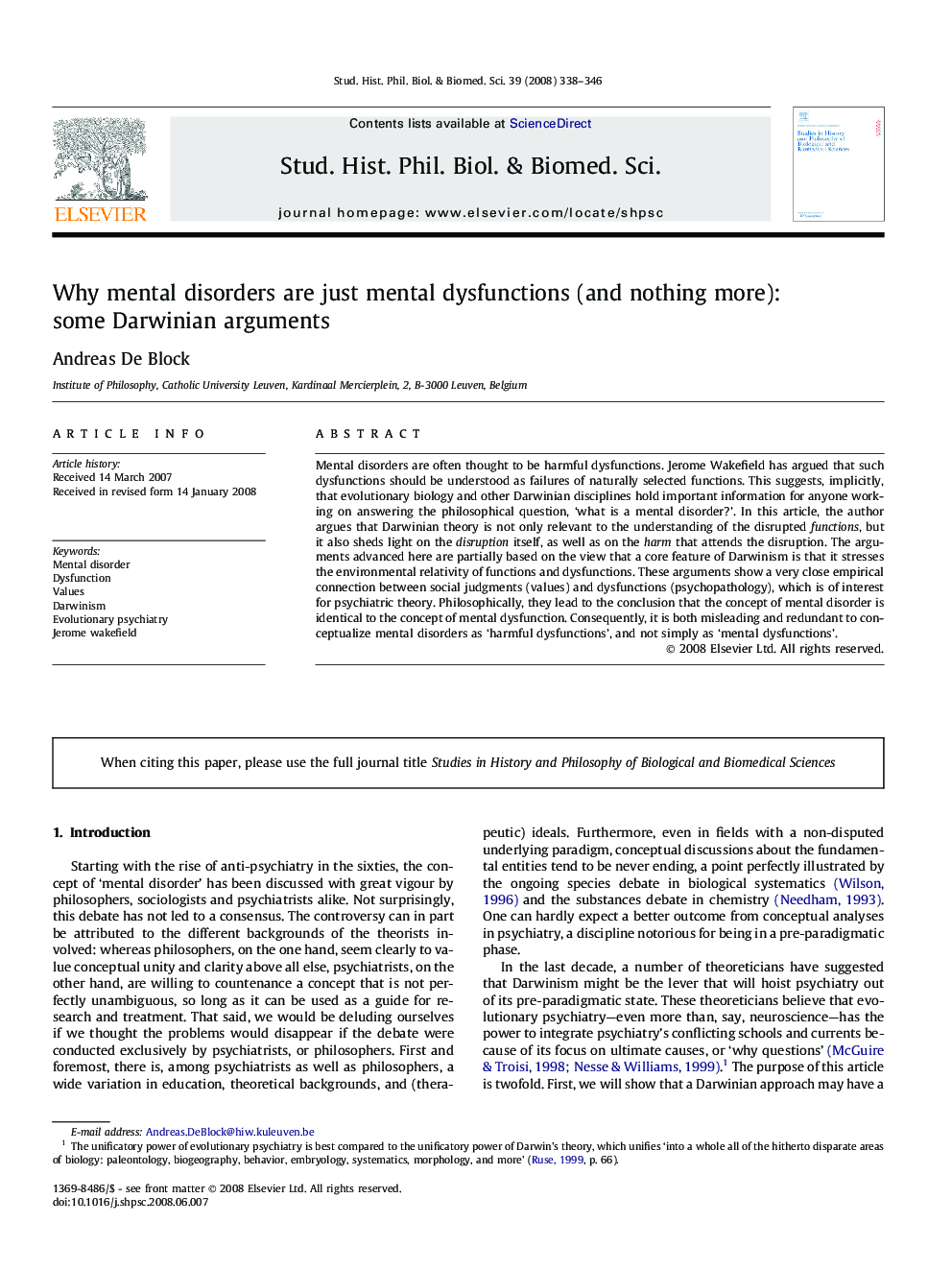| Article ID | Journal | Published Year | Pages | File Type |
|---|---|---|---|---|
| 1162089 | Studies in History and Philosophy of Science Part C: Studies in History and Philosophy of Biological and Biomedical Sciences | 2008 | 9 Pages |
Mental disorders are often thought to be harmful dysfunctions. Jerome Wakefield has argued that such dysfunctions should be understood as failures of naturally selected functions. This suggests, implicitly, that evolutionary biology and other Darwinian disciplines hold important information for anyone working on answering the philosophical question, ‘what is a mental disorder?’. In this article, the author argues that Darwinian theory is not only relevant to the understanding of the disrupted functions, but it also sheds light on the disruption itself, as well as on the harm that attends the disruption. The arguments advanced here are partially based on the view that a core feature of Darwinism is that it stresses the environmental relativity of functions and dysfunctions. These arguments show a very close empirical connection between social judgments (values) and dysfunctions (psychopathology), which is of interest for psychiatric theory. Philosophically, they lead to the conclusion that the concept of mental disorder is identical to the concept of mental dysfunction. Consequently, it is both misleading and redundant to conceptualize mental disorders as ‘harmful dysfunctions’, and not simply as ‘mental dysfunctions’.
